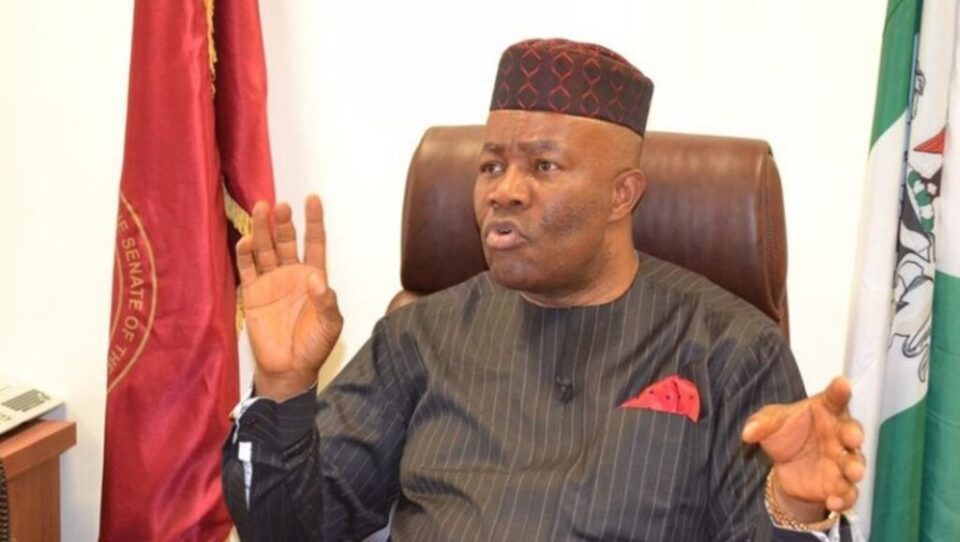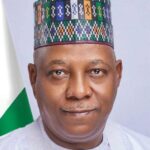By Abbanobi – Eku Onyekachi
Abuja
Nigeria’s Senate President Godswill Akpabio says Nigeria always values ASSECAA as a pivotal platform for advancing parliamentary collaboration, just as it takes pride in having hosted the inaugural ASSECAA retreat in 2006, according to his Special Assistant on Media, Jackson Udom Thursday.
Speaking at the 11th Annual Retreat of the Association of Senate, Shoora and Equivalent of Councils in Africa and the Arab World (ASSECAA) in Malabo, Equatorial Guinea, Thursday, Akpabio restated the commitment of Nigeria to the alliance and believes strongly in the power of cooperation to drive development across Africa and the Arab world.
He said: “Nigeria has always valued ASSECAA as a pivotal platform for advancing parliamentary collaboration. We take pride in having hosted the inaugural ASSECAA retreat in 2006 and have remained committed to this alliance, firmly believing in the power of cooperation to drive development across Africa and the Arab world.
Under the leadership of President Bola Ahmed Tinubu, Nigeria continues to champion parliamentary diplomacy and intergovernmental cooperation. We recognize that unity and partnership across our regions are crucial in addressing the global challenges that confront us all. Our commitment is unwavering, and forums like this reinforce our shared vision for a prosperous and peaceful future.
“This year’s theme, “Strengthening the Joint Parliamentary Action of the Global South Countries to Face Environmental, Technological, and Development Challenges,” is both timely and essential. As legislators, we bear the responsibility of crafting policies that will secure the future for generations to come. The crises we face—climate change, rapid technological advancements, and persistent development issues—necessitate not just individual national efforts but a collective strategy.”
He continued: “As we delve into these challenges, it is imperative to acknowledge the intertwined histories of Asia and Africa. Both continents, having faced colonial legacies, have shown remarkable resilience and cooperation. The struggles for independence and the pursuit of sustainable development have forged a bond between our peoples, reminding us that collaboration is not only possible but necessary.
“In Nigeria, we have embraced this spirit of cooperation as we confront our own developmental, technological, and environmental challenges. Our nation is rich in resources, yet we continue to grapple with issues such as poverty, inadequate infrastructure, and environmental degradation. The growing population and urbanization place tremendous pressure on our resources, demanding innovative solutions and collective action.
“Regarding environmental challenges, we in Africa and the Arab world are acutely aware of the urgency of addressing climate change. From rising sea levels in coastal cities to desertification in our arid regions, our ecosystems are under severe threat. I commend President Bola Ahmed Tinubu for Nigeria’s bold steps in green initiatives, including large-scale renewable energy projects. Yet, we know that meaningful progress lies in regional cooperation. Our united voices in the Global South must advocate for climate justice and the implementation of sustainable practices.
He added: “In the realm of technological advancement, we face rapid shifts that present both immense opportunities and significant challenges. The digital economy promises substantial growth, but our policies must foster innovation while safeguarding the interests of all citizens. Equatorial Guinea’s strides in technological development are commendable and serve as a model for the region. We must work collaboratively to ensure these advancements benefit all sectors of society, especially the most vulnerable.
“Development challenges remain a critical focus. Addressing poverty, inequality, and underemployment requires innovative legislative solutions. In Nigeria, we are striving to create environments that promote infrastructure development, generate employment, and support small businesses. However, collaboration with regional partners is essential for greater impact. It is through forums like this that we can share best practices, align legislative efforts, and support each other in driving economic growth.”



